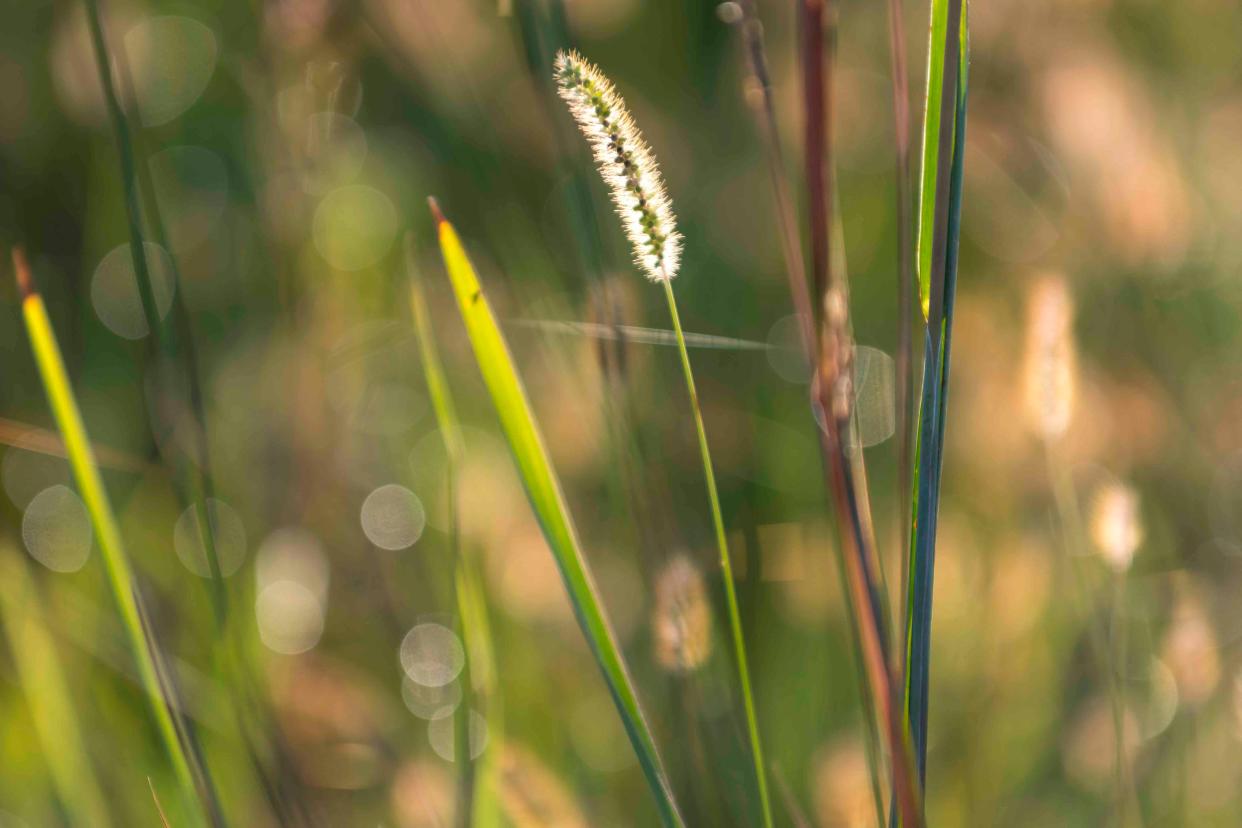This Kansas community has distinction as being the 'allergy capital of the U.S.'

Medical science has improved considerably over the years in terms of better relieving the misery people feel from allergies, says longtime allergy sufferer Amy Jean Harrison, of Topeka.
Unfortunately, Harrison said, the pollen has gotten "much worse" over the past couple years.
A university study bears that out, saying recent years have brought longer pollen seasons and more potent allergens to North America.
Misery of allergy season is lasting longer and producing more pollen
Those seasons now start earlier, last 20 days longer and produce 21% more pollen than they did in 1990, with human-caused global warming being a significant reason for that, said the study completed in 2020 by the University of Utah.
The study analyzed counts between 1990 and 2018 from 60 pollen stations the National Allergy Bureau maintains across the U.S. and Canada. Those stations collect mold samples and airborne pollen, which are then hand-counted.
After splitting the study years into two periods, 1990-2003 and 2003-2018, researchers concluded the degree to which climate change contributes to rising pollen counts has been accelerating.
'Allergy capital of the U.S.' is in Kansas
Kansas is known for farms, tornadoes, "The Wizard of Oz" and — increasingly — the itchy, sneezy misery of seasonal allergies.
The Sunflower State is home to the allergy capital of the U.S., says the Asthma and Allergy Foundation of America.
It recently awarded that dubious distinction for 2023 to Wichita, which had placed second for 2022 behind Scranton, Pennsylvania.
Wichita took this year's top spot because of its worse-than-average tree and grass pollen, higher-than-average allergy medicine use and lower presence of board-certified allergists and immunologists, the AAFA said.
The Kansas City, Missouri, metro area finished 21st on the AAFA's list of this year's 100 worst cities for allergens.
No other cities in Kansas made the list, because none were considered.
In creating the list, the AAFA said, it only studied data from the 100 most-populated metropolitan areas in the U.S.
'I couldn't breathe and my eyes were swollen'
Amy Jean Harrison, a longtime Topekan, she used to wake up sneezing every day during allergy season and would feel miserable for most of the day.
"I would sneeze and the teacher three doors down would say 'Bless you Amy,' because they knew it was me," she said.
Harrison said she first learned she had an allergy problem when she was about 4 years old, and her sister brought home some kittens she found along the side of the road.
"I couldn't breathe and my eyes were swollen, so we knew I was allergic to cats right away," she said.
Harrison regularly had to be hospitalized in the fall for pneumonia or bronchitis.
But about 10 years ago, she said, she enjoyed considerable relief after seeking help from Bilal Khan, internal medicine specialist at Topeka's Cotton-O'Neil Allergy and Immunology Clinic.
He put her on a regimen of various allergy-related medications.
Harrison has also received a series of vaccinations to help build her resistance, she said.
Today, she said, she takes about five allergy medicines every morning and uses an application on her cell phone to keep track of when pollen counts are high.
Harrison still sometimes experiences allergy symptoms but feels much better overall, and no longer wakes up sneezing, she said.
"I'm able to function, and I don't get pneumonia and bronchitis," she said.
Medium-high pollen count forecast Monday for Topeka
More than 67 million Americans suffer from allergy symptoms, including hay fever, said the website pollen.com.
That site is maintained by IQVIA, a Durham, N.C.,-based pharmaceutical company that manufactures a tool used to measure pollen counts.
Pollen.com offers a function that enables users to go online to learn the allergy forecast for the city where they live.
Its Topeka forecast said Monday's pollen count here is expected to be 6.3, which it described as being "medium."
Contact Tim Hrenchir at threnchir@gannett.com or 785-213-5934.
This article originally appeared on Topeka Capital-Journal: Kansas is increasingly becoming known for seasonal allergies

